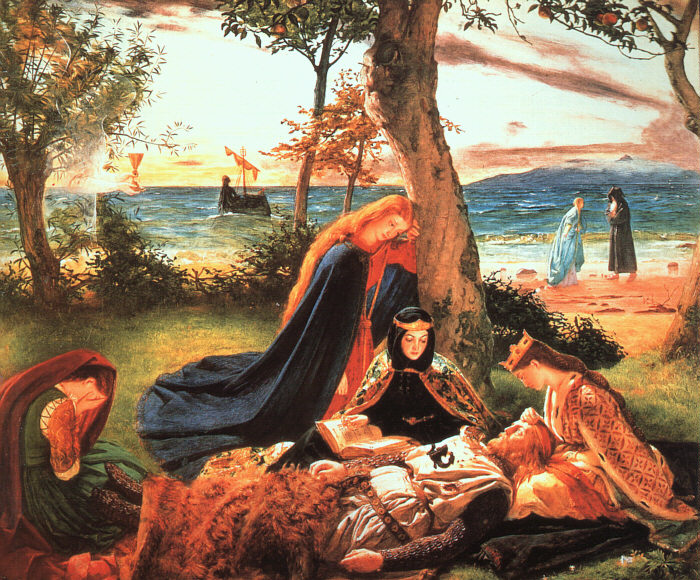Memorial Day
“Let us sleep now,” writes Wilfred Owen at the conclusion of one of the greatest anti-war poems ever written. The wasted promise of human life described in “A Strange Meeting” is so heartrending that death seems a kind of relief, a devoutly wished consummation that ends the thousand natural shocks that flesh is heir to. The thousands of vets who have committed suicide after returning from war have arrived at that conclusion.
Sir Walter Scott captures death’s attraction in “Soldier Rest,” a ballad that is sung by the mysterious Lady of the Lake in the poem by that name. The battered James Fitz-James (actually King James V) finds his way to a strange castle in the wilderness and there he hears the following enchanting song:
Soldier, rest! thy warfare o’er,
Sleep the sleep that knows not breaking:
Dream of battled fields no more,
Days of danger, nights of waking.
In our isle’s enchanted hall,
Hands unseen thy couch are strewing,
Fairy strains of music fall,
Every sense in slumber dewing.
Soldier, rest! thy warfare o’er,
Dream of fighting fields no more:
Sleep the sleep that knows not breaking,
Morn of toil, nor night of waking.
No rude sound shall reach thine ear,
Armor’s clang, or war-steed champing,
Trump nor pibroch summon here
Mustering clan, or squadron tramping.
Yet the lark’s shrill fife may come
At the day-break from the fallow,
And the bittern sound his drum,
Booming from the sedgy shallow.
Ruder sounds shall none be near,
Guards nor warders challenge here,
Here’s no war-steed’s neigh and champing,
Shouting clans or squadrons stamping.
Huntsman, rest! thy chase is done,
While our slumbrous spells assail ye,
Dream not, with the rising sun,
Bugles here shall sound reveillé.
Sleep! the deer is in his den;
Sleep! thy hounds are by thee lying;
Sleep! nor dream in yonder glen,
How thy gallant steed lay dying.
Huntsman, rest; thy chase is done,
Think not of the rising sun,
For at dawning to assail ye,
Here no bugles sound reveillé.
It is scant comfort to those who have lost loved ones to war-related death, but perhaps they can console themselves with the idea that, for those men and women, war’s clamor has subsided and they are now at peace.


